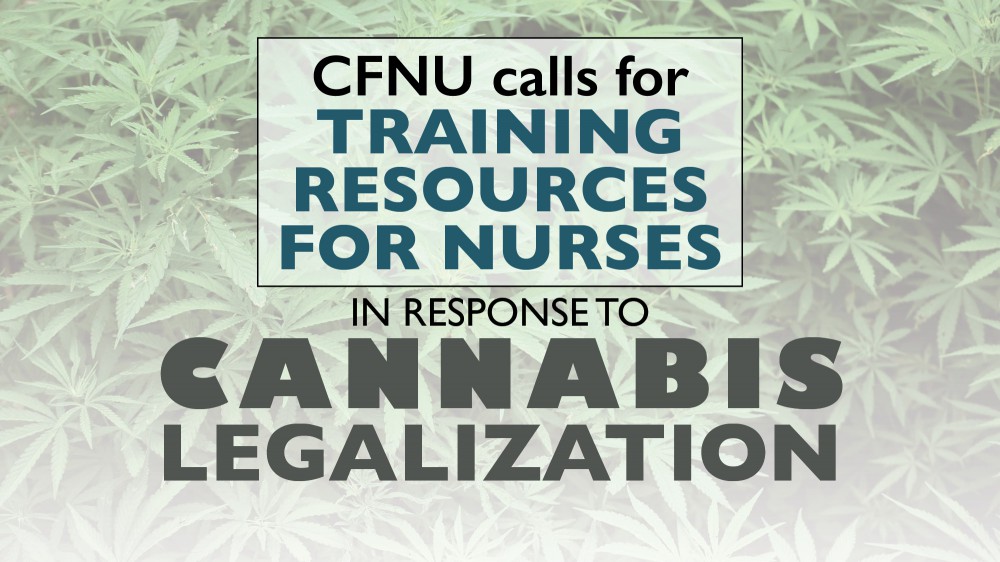CFNU calls for training resources for nurses in response to cannabis legalization
With the use of medical and recreational cannabis now legal in Canada, nurses must be provided with sufficient resources and training to assist with the administration of medical cannabis and respond to the public about the health implications of recreational cannabis use, the Canadian Federation of Nurses Unions said today.
In papers on the occupational health and safety implications of Canada’s legalization of cannabis, which took effect on October 17, the CFNU outlined its position on how the nursing profession and employers of nurses should respond, as well as providing OH&S recommendations for health care workplaces.
CFNU argues legalization has the potential to increase cannabis use, both medical and recreational, and that nurses must follow nursing regulatory policies as well as their code of ethics.
In addition, the papers noted the important role nurses play in public health care and discussed the requirement for employers to accommodate patients who use medical cannabis, as well as nurses who use medical cannabis.
“Employers have a responsibility to ensure the safety of nurses through appropriate policies, protocols, personal protective equipment and training, and that if these elements are not in place, nurses may have a right to refuse dangerous work, as laid out in occupational health and safety legislation and collective agreement language,” the papers noted. They added that nurses should contact their provincial unions with questions about refusing unsafe work.
CFNU’s recommendations included the following points:
- When medical cannabis is used in hospitals and long-term care facilities, or medical and/or recreational cannabis is used in private residences attended by home care nurses, nurses should be provided with appropriate training and have access to recommended personal protective equipment.
- Risk of cannabis exposure should be included in employer safety policies.
- Those policies should include a non-consumption period for patients before a nurse is required to enter a patient’s residence or room.
- If a nurse is faced with improper training, lack of PPE, unsafe conditions of work, or a nurse’s right to accommodation is not respected, that nurse should contact the union.
- To accommodate an employee who uses medical cannabis, an employer should mirror the practices it has developed to accommodate any employee who has been prescribed drugs that have the potential to impact or impair their work.
- There should be no random drug testing.

